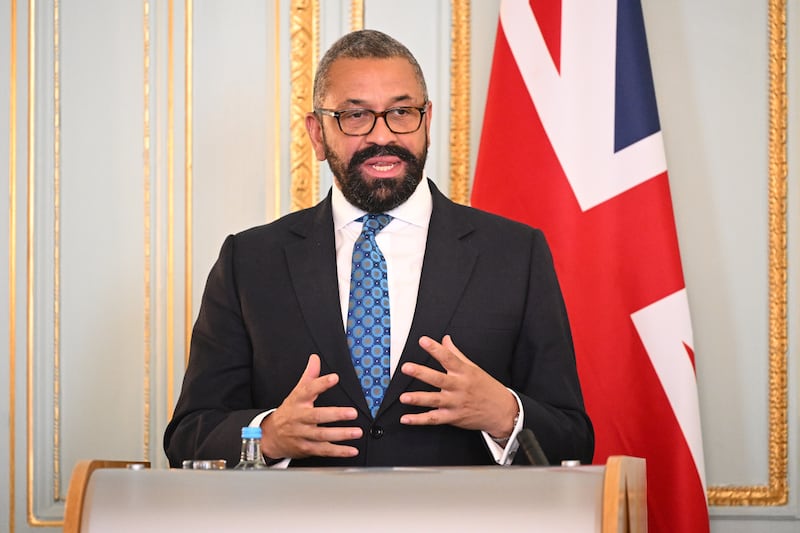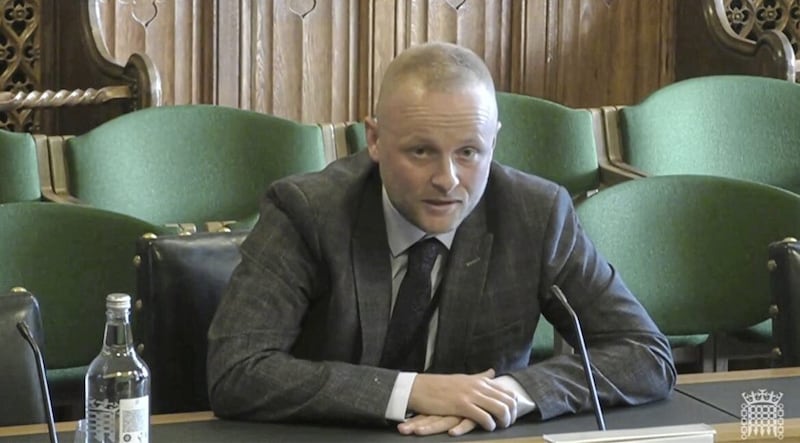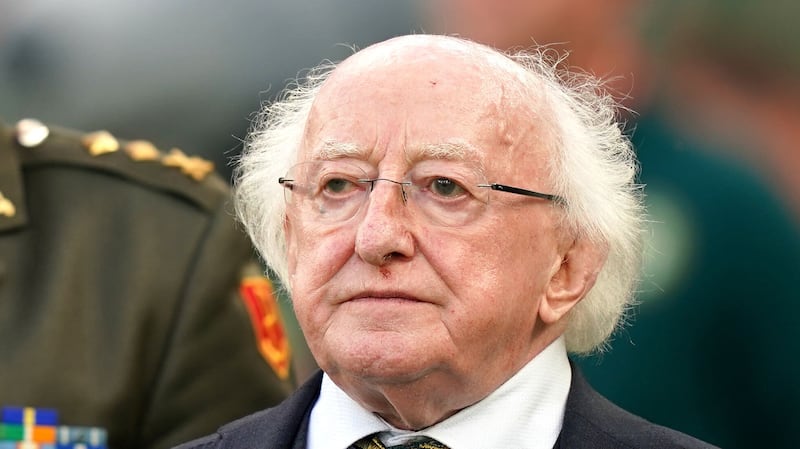SIR Jeffrey Donaldson has proposed establishing an “east-west council” for the UK and its devolved regions, as a forum for discussion and cooperation.
He raised the idea at last weekend’s DUP party conference and again at Prime Minister’s Questions, where Rishi Sunak said it had “considerable merit”.
This is obviously going into the mix for a deal to restore Stormont. Some nationalists have expressed concern that it partly replicates the British-Irish Council in the Good Friday Agreement, but nothing in the agreement stops the UK talking to itself.
Donaldson's idea replicates previous attempts
What should concern unionists is that Donaldson’s proposal closely replicates existing structures. The Joint Ministerial Committee operated from 1999 until last year, when a review into the mechanics of the union replaced it with the new Prime Minister and Heads of Devolved Government Council.
These arrangements keep languishing in obscurity, despite occasional bursts of attention, because Downing Street never sustains its interest in them.
Why would another attempt be any different?
**
Read more:
Brian Feeney: Jeffrey Donaldson's dithering has only emboldened his opponents
Sinn Féin boycott?
Sinn Féin attended the Joint Ministerial Committee but without enthusiasm. Martin McGuinness vetoed a 2016 plan by Theresa May to raise its profile. So what happens if Sinn Féin obstructs or boycotts an east-west council?
Speaking to UTV this week, Donaldson said: “As to who is First Minister, it is a joint office, Michelle O'Neill can’t order a paperclip without the say so of the DUP.”
This comment was aimed at soothing his party’s nerves about a return to Stormont but it cuts both ways. A DUP Deputy First Minister could not attend a meeting without Sinn Féin’s say so – or conduct any business if they decided to turn up regardless.
**

UK diplomats in Sinn Féin meetings?
In more devolutionary hilarity, Foreign Secretary James Cleverly has threatened to block SNP ministers from meeting overseas governments. This follows an incident in New York last month when Scottish First Minister Humza Yousaf stopped UK diplomats sitting in on a meeting with the Icelandic prime minister.
The Foreign Office has reissued what it calls “long-standing guidance”, requiring a UK diplomat to be present when a minister from a devolved administration meets foreign officials.
Cleverly also warned the SNP his staff will tell other governments such meetings are inappropriate without a UK diplomat in attendance.
How could any of this be applied to Michelle O’Neill? It can hardly have stood for long with Martin McGuinness.
**

Is Jamie Bryson 'the voice' of loyalism?
Jamie Bryson was invited to testify before Westminster’s all-party Northern Ireland Affairs Committee. Most members were unimpressed, or absent, which DUP MP Carla Lockhart said showed disregard for “the voice of loyalism”.
Bryson is certainly a voice of loyalism but he is not the voice. While Lockhart may have meant ‘the’ in the general sense, it would have been better to say ‘a’, just to be clear.
**
Legacy and human rights law
The Supreme Court has ruled on the police investigation into a 1988 IRA bomb that cost three lives. This has clarified significant points for Troubles legacy.
The obligation to investigate deaths is inferred from the right to life in article 2 of the European Convention on Human Rights, which came into force in UK law in 2000. Laws cannot normally be applied retrospectively – a principle in the convention itself
The court emphasised European case law, which has established article 2 can apply back 10 years in certain circumstances, but further back only in extraordinary circumstances, such as crimes against humanity. Four years ago, the Supreme Court ruled the 1989 murder of Pat Finucane required an article 2 investigation. Judges have now declared this marks the retrospective limit.
So most Troubles deaths fall outside the scope of article 2, the basis of almost every legal argument about legacy processes.
**

Michael D Higgins and Hamas
Irish President Michael D Higgins has criticised European Commission president Ursula von der Leyen for exceeding her remit by speaking about Israel and Palestine.
Ironically, this exceeds his remit. In a further irony, Higgins can count on diplomatic protocol to stop others mentioning his own outspoken record on this issue.
Perhaps his strangest comment was in 2007, when he told the Dáil “Hamas is more advanced than the IRA” on moving from violence to politics – quite a claim to make a year after the St Andrews Agreement, even if Sinn Féin had still not fully signed up to policing. Does the president still believe this? If not, when exactly did he judge the IRA had become more advanced than Hamas?
**

Sums on rail link to airport don't add up
The owners of Belfast International Airport are investing £100 million to update its facilities. This will undoubtedly lead to more calls for a rail link, as proposed in the recent all-island rail review, so a reality check is needed on that fantasy document.
Re-opening the Lisburn to Antrim line would effectively mean rebuilding it, at a cost of around £150 million. To offer a useful service to an airport station, let alone an improvement on buses, express trains would need to run three or four times an hour throughout most of the day and hourly overnight. The sums for this simply do not add up.
**
Larne gas caverns
The difficulty of getting anything built in Britain, especially major infrastructure, has thrown a spotlight on the issue of endless legal challenges.
Similar concerns have been raised around the A5 in Northern Ireland and the problem is also starkly illustrated by the Larne gas caverns saga.
Campaigners against the undersea energy storage project are appealing a High Court ruling last month, when their application for a judicial review was dismissed on all grounds. In other words, it did not even get as far as being judicially reviewed because it was so completely and obviously wrong.
While every decision process needs an avenue of appeal, it should be clear when an argument has run out of road.








